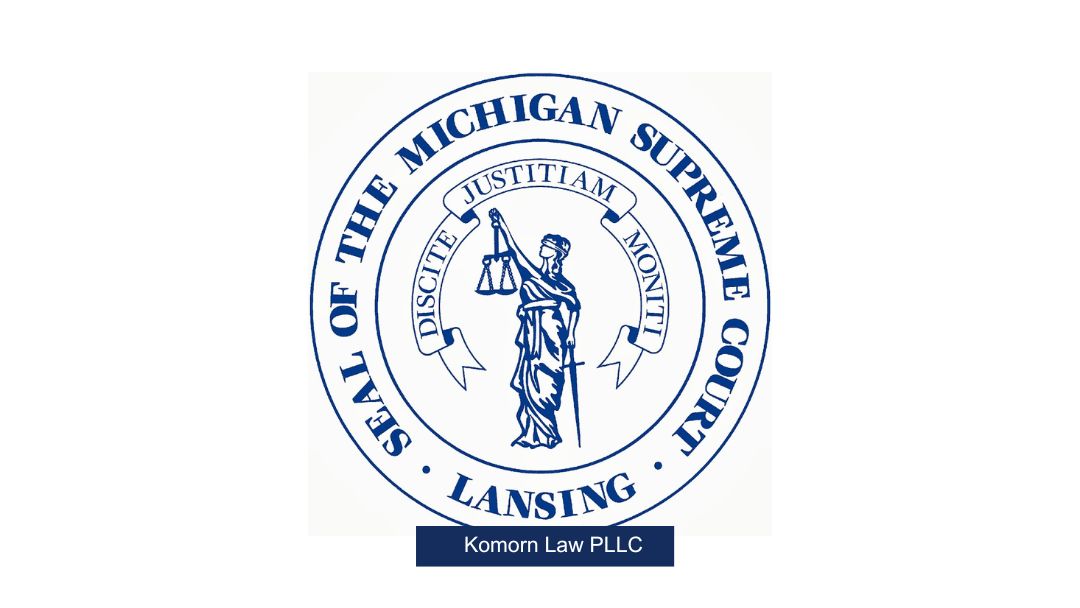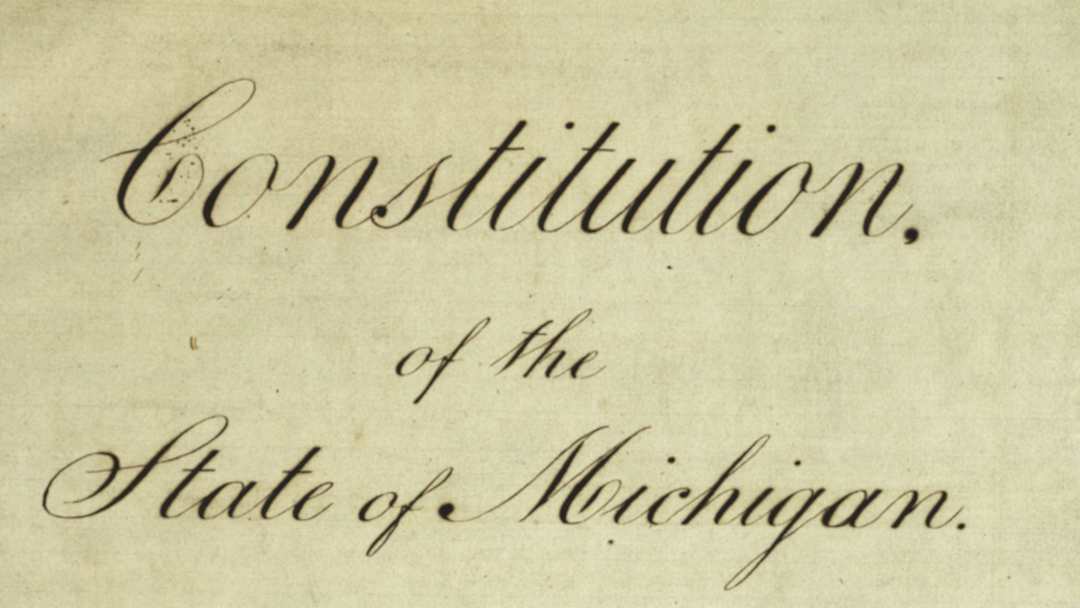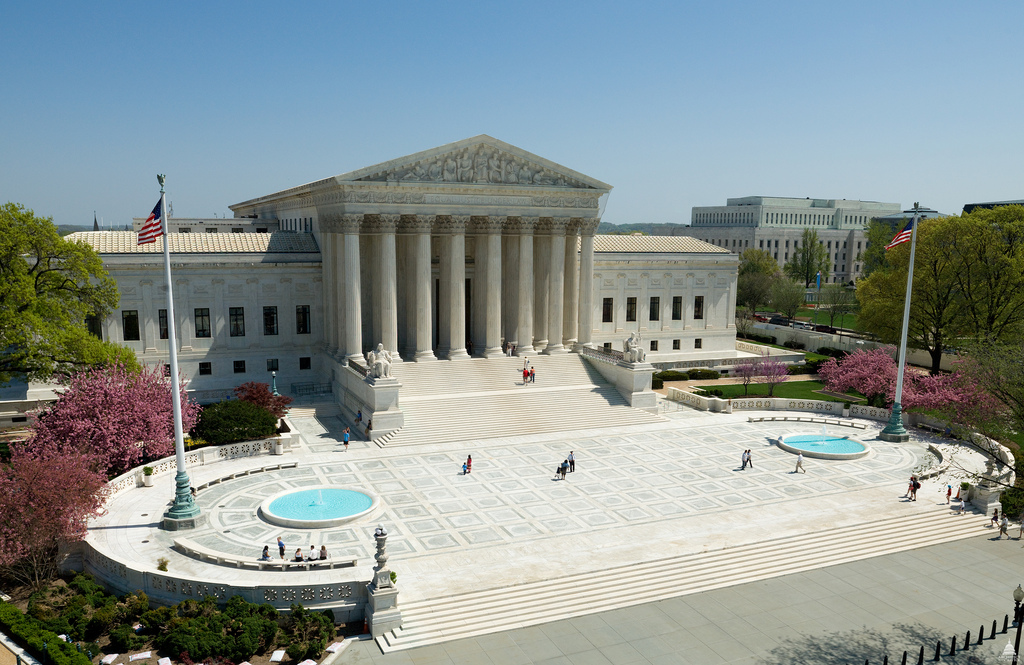Michigan Criminal Laws FAQs Theft CrimesAccording to Michigan State Law (Michigan Compiled Laws - MCL), Theft Crimes generally involve the unlawful taking of someone else's property with the intent to deprive them of it, either permanently or for a significant period....

Michigan Supreme Court – People of Michigan v. Duff
A seizure may occur when a police vehicle partially blocks a defendant’s egress if the
totality of the circumstances indicate that a reasonable person would not have felt free to leave
In the case of People v Duff (July 26, 2024)., the Michigan Supreme Court issued an opinion regarding police seizure.
Background of the Case: Police officers observed a parked car with its engine running in an elementary school parking lot at 10:00 p.m. They parked their patrol car about ten feet behind the parked car at a 45-degree angle, with headlights and a spotlight directed at the car.
The officers approached the vehicle, detected signs of intoxication from the driver, and took him into custody following failed field sobriety tests. The driver later agreed to a blood draw and confessed to consuming alcohol.
Key Legal Issues: The defendant’s motion to suppress evidence of intoxication was denied by the Oakland Circuit Court, as it claimed the evidence was obtained through an unlawful seizure. The Court of Appeals also denied interlocutory leave to appeal.
The Michigan Supreme Court remanded the case to the trial court to determine when the defendant was first seized for Fourth Amendment purposes. On remand, the trial court granted the defendant’s motion to dismiss, finding that the defendant was seized when the patrol car parked behind him.
The Court of Appeals overturned the decision, stating that the defendant was not considered to be under seizure when the patrol car pulled up 10 feet away at a 45-degree angle.
Michigan Supreme Court Decision: A police vehicle blocking a defendant’s exit may constitute a seizure if a reasonable person would not feel free to leave based on the circumstances.
The Court determined that the defendant was seized prior to the officers detecting any signs of intoxication, taking into account the police behavior, timing, and environment.
The Court of Appeals’ decision was overturned, leading to a remand to assess if the officer had reasonable suspicion of criminal activity during the defendant’s initial seizure.
Read the opinion here:
Legal Counsel and Your Rights
When facing legal challenges, particularly in criminal cases, it is advisable to seek legal counsel immediately.
An experienced attorney can provide guidance on how to navigate interactions with law enforcement while safeguarding your constitutional rights.
Since 1993 our expert legal defense in navigating criminal law matters and protecting your constitutional rights are what we eat for breakfast everyday.
Contact Komorn Law PLLC if you’re ready to fight and win.
Research us and then call us.
More Rights You Should Know

Criminal Law FAQs – Theft Crimes

4th Circuit says – Assault weapons can be banned
This case is about whether the Act’s general prohibition on the sale and possession of certain “assault weapons,” are unconstitutional under the Second Amendment. An en banc federal appeals court upheld Maryland’s ban on assault-style weapons in a 10-5 decision...
Other Articles
Legal Tip – Driving High on Cannabis in Michigan
Driving under the influence of cannabis is illegal and carries serious consequences in Michigan.We have fought and won many cases from the District Courts, Circuit Courts, Court of Appeals and the Supreme Court through out the State of Michigan. We have also fought...
Michigan House Bill NO. 4391
It may just be easier to collect and analyze tears.This legislation seeks to integrate saliva testing for cannabis within law enforcement procedures, designating a refusal to participate in this testing as a criminal offense, similar to the penalties imposed for...
Legal Tip – Your Rights During a DUI Stop in Michigan
Komorn Law - Quick Legal TipsLegal Tip: Understanding Your Rights During a DUI Stop in Michigan A DUI stop can be stressful, but knowing your rights is crucial. You have the right to remain silent. You are not obligated to answer questions beyond basic identification....
How to create and share a Dropbox link
Simplified Sender and Receiver Dropbox Share Instructions to Someone NOT on your Team. Don't get caught up in another license or give access to your whole box by mistake.Dropbox Sender Share Instructions Log into your Dropbox account Hover over the file or folder...
Smell of marijuana no longer legal grounds for search
The Michigan Supreme Court has ruled that the smell of marijuana alone is no longer sufficient probable cause for police to conduct a warrantless search of a vehicle. This decision overturns a previous precedent where the odor of marijuana was considered enough...
Michigan Forfeiture News Articles
Can the police sieze your belongings and hold it without charging you with a crime?Civil asset forfeiture is a legal process that allows law enforcement agencies in Michigan to seize property they suspect is connected to criminal activity, even if the owner hasn't...
What Happens When the Government Takes Your Property?
Can the police sieze your belongings and hold it without charging you with a crime?Forfeiture laws in Michigan allow the government to seize property – like cash, cars, or even houses – if they believe it was involved in a crime. This can happen even if the owner...
Defending Against Criminal Sex Charges
Defense against false accusations of Criminal Sexual Conduct (CSC) in MichiganDefending against a false accusation of Criminal Sexual Conduct (CSC) in Michigan is a serious matter and requires a well-prepared legal strategy. Here are several steps you should take to...













